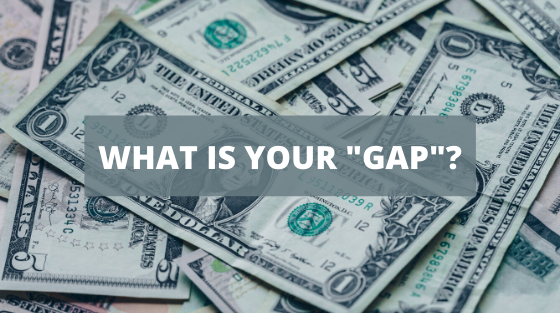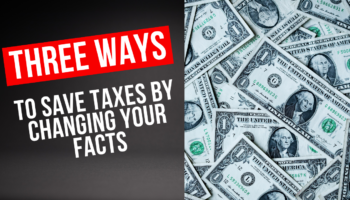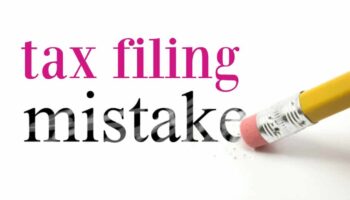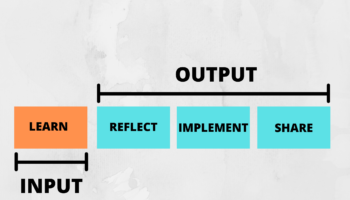In my last article I challenged you to an exercise that required you to review the total income earned and total taxes paid in the last decade. If you did the exercise, it may have revealed something shocking about the way you’ve managed your finances over the last decade.
I found this exercise shocking after doing it myself going back to as far as I could go to find my tax data. Although what I discovered was not a complete disaster, it was certainly mediocre. And this is totally acceptable given that for many years I lacked financial awareness and made so many costly mistakes along the way. Today, I am certainly more aware. Although I do slip to bad money habits from time to time, I’m able to learn and adjust quickly to get back on track. If you’re like me, you are also on the path to lifelong learning. This is one reason I committed to blogging on this platform daily for the next 365 days.
One of the greatest mistakes I made and one that most people make on the path to financial freedom is the lack of a strong focus on the “GAP”. The math equation below illustrates what the “GAP” is:
[EARNED INCOME] – [EXPENSES] – [TAXES] = “GAP”
For many years, I obsessed about growing my earned income and paid little attention to the “GAP” or anything else for that matter in the equation above. Today, household debt is going through the roof because most people have paid little or no attention to the “GAP”. It is one of the leading causes of high-profile bankruptcies – both in our personal lives and in our businesses. While there are so many reasons why people struggle with this, here are just a few common ones:
- You think that earned income is king: I know a lot of people that earn $100,000 per year and live a $100,000 per year lifestyle. I’m sure you know a few people like this as well. If you did the challenge I posed in my last article, you know that the first $20,000 to $30,000 of that income is going to the government in taxes. So, by living a $100,000 lifestyle you end up in debt or what I refer to as negative “GAP”. This is one reason why high-profile celebrities declare bankruptcies. They make a million dollars, either forget or refuse to pay taxes and spend the entire million dollars.
- Consumption pressure: If you live in a Western economy like Canada, you are bombarded each day with the lure of consumption. It is in everything we see, hear, touch and smell. We’re constantly bombarded by advertisement to buy and buy and buy…it is unstoppable. This pressure to consume drives up our expenses as we end up acquiring things we don’t really need. We end up buying new rather than used. We want to keep up with the new trend in fashion and electronic gadgets. It is a crazy world of consumption and it is certainly the reason why consumer debt and household debt are going through the roof.
- You ignore taxes: This is another big one that most people are likely unaware of, mainly for two reasons. First, they don’t even know it is their biggest expense, particularly for those that make a decent income. And secondly, most people resign to the false belief that they can do nothing about their taxes. You can reduce your taxes. You just need to increase your knowledge and plan accordingly.
- Keeping up with the Joneses: This one is huge. It is huge because it is more of a money mindset and it drives our behaviour as it relates to the income and expense variables in the equation above. Because we are social animals, a lot of our money life is also about how we show up in the society. So, there is always enormous pressure to be like the neighbor next door even though we know nothing about this neighbor, in fact, we may even hate this neighbor. Yet, there is a pull in our nature to want to keep up. Often, this leads to a negative “GAP”.
A better approach to financial well-being is to obsess about the “GAP”. If you do this, you will automatically pay attention to all the variables that make up the “GAP” – your income, your expenses, and your taxes. From my own personal experience and from what I have seen over the years working with many clients, you will struggle financially if you don’t focus on maintaining a positive “GAP”. And to accelerate your wealth on a tax-efficient manner, you will have to focus on aggressively growing your “GAP”. There are so many ways to accomplish this and here are just a few practical ideas to consider:
- Be intentional about what you want in life: I encourage you to start by considering what you want in life and how you want your life to look like including your finances, emotions, relationships, etc. Once you know what you want in life, it is easy to plan on how to achieve it. Look at all aspects of your life and determine what your purpose in life is. Your purpose in life gives your life meaning. William Damon at Stanford says that purpose is “A stable and generalized intention to accomplish something that is at the same time meaningful to the self and consequential for the world beyond the self.” This is key, because without purpose and meaning in life, we often end up being controlled by money. So, you want a bigger purpose in life that allow you to see money as a tool to achieving the life you want.
- Start with the easy wins: While all the variables in the equation are important, the easiest place to start is with your expenses as this can give you immediate result and momentum. I recognize it can be challenging to make changes to our everyday life and cut out certain expenses as we’re often reluctant to do this. What I find that works is to surround yourself with others that can hold you accountable. Also, you can consider taking an extreme approach and cut out everything. By doing this, you will often discover things you don’t miss. For the things you really miss, you can bring them back in and figure out ways to pay less for them.
- Invest in yourself: You will certainly live a mediocre life and most likely a less than mediocre life if you don’t constantly invest in yourself. If you want to live a fruitful life, read and learn from those that are living a fruitful live and model what they do. If you want to be promoted to earn more income, hang out with those that have been promoted and learn from them. If you want to achieve financial success, model those that have achieved financial success. The average person reads about 4 books a year and spends most of his/her time mindlessly listening to news and watching TV. You must be intentional to grow into the life you want by constantly reading, listening to podcasts, and actively implementing the things you learn to grow and get the results you want in life. I know people that have not changed in 10 years – they still think the way they thought 10 years ago; they still have the same income they had 10 years ago; they still talk the same way they did 10 years ago; and 10 years later, they are still broke and continue to hang out with the same set of people. I am sure you know people like this as well.
- Use your assets: Often, we complain that we have no money or no income, but we’re surrounded by assets that are lying idle. Assets ranging from our knowledge and experiences to the things we own lying around our homes and the equity sitting idle in our big homes. You need to creative in ways you can use the assets you have to generate more income that will help you increase your “GAP”.
- Invest in real things: One reason why most people struggle financially is often the need to invest in shinny objects – bitcoin today, currency trading tomorrow, and a fancy IPO the next day. They are always looking for the next big investment for quick money. They invest without a strong understanding of what they are investing in. Once you grow and build your “GAP”, you need to invest it wisely to grow and accelerate your wealth. Personally, I think the best way to invest and sleep well at night is to invest in real things such as real estate, viable businesses and precious metals like gold and silver. If you must invest in anything, at the minimum, make sure you understand it. If you’re investing in stocks, take the same approach Warren Buffet takes. I love this quote from Jim Paul and Brendan Moynihan, authors of the book, What I Learned Losing A Million Dollars, “Most people don’t know whether they are investing, speculating or gambling, and to the untrained eye the activities are very similar”.
At the end of the day, the path to a strong financial well-being is simply solving this math equation. Solving the math equation will require you to know all the variables that go into this equation. If you can manage the variables, you can certainly mange your “GAP”.






